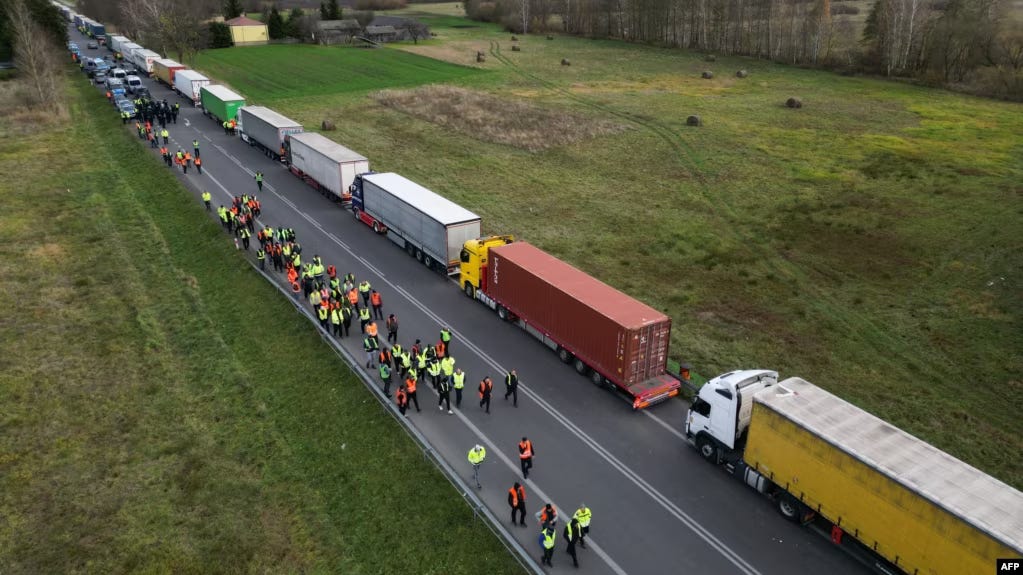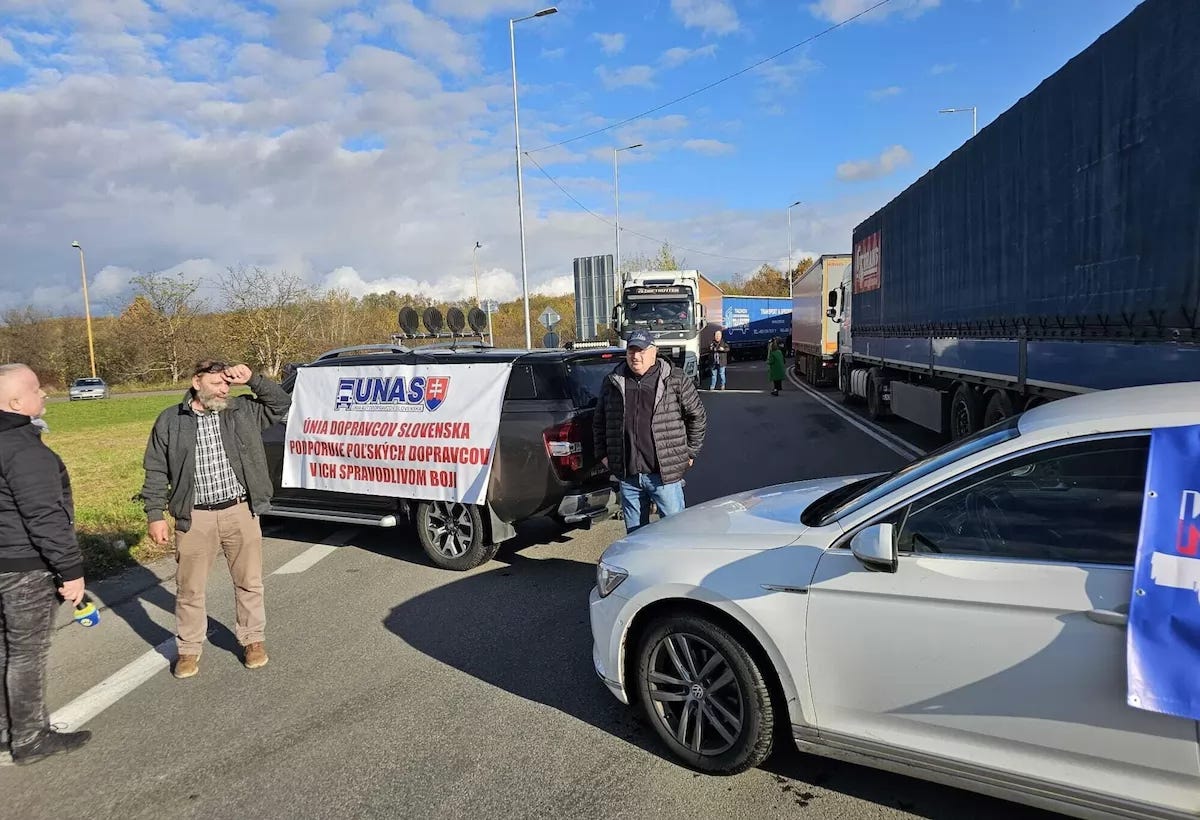Ukrainian Trucks Blocked by Poland and now by Slovakia
Ukrainian Grain is Genetically Modified and Banned in the EU But Still Sold In the EU Under the Table
Editor’s Note: Peter G. Feher is based in Hungary and writes for Magyar Hirlap (Hungarian Gazette). Here he writes about the clash between Poland, Slovakia and Ukraine which has partly blocked arms deliveries to Ukraine. Mr. Feher is a specialist in foreign policy and international affairs and a journalist since 1977.
Hundreds, or rather thousands, of trucks are going to waste this weekend on both sides of the common Hungarian-Ukrainian border.
The reason for the congestion is that the Slovak truck drivers in Slovakia, neighboring Hungary, blocked truck traffic between Slovakia and Ukraine on Friday. That is why Ukrainian trucks try to enter the territory of the European Union at the nearby Hungarian border.
History of what happened: The Polish truck drivers already built a blockade on the Polish-Ukrainian border on November 6. They were followed by the Slovaks on December 1. Therefore, Ukrainian trucks can only enter the EU through the open Hungarian border.

The Hungarian authorities are doing their best to speed up the release and admission of Ukrainian trucks. However, this does not work. On the Ukrainian side, administration is very slow. At one of the Hungarian-Ukrainian border crossings, on the Ukrainian side, the waiting time for trucks bound for Hungary was 127 hours. The situation on Saturday evening: about 2,000 trucks are stuck on the Polish side, 800 trucks are waiting on the Ukrainian side. The situation is dramatic, two truck drivers died while waiting, details are unknown.
The reason for the protest of the Polish and Slovak truck drivers: The EU - after the outbreak of the Russian-Ukrainian war - made it easier for Ukrainian trucks from outside the EU to enter the territory of the Union. The aim was to facilitate Ukraine’s exports and imports with the European Union. The Ukrainian truck drivers abused the situation. Ukrainian drivers undertook transportation within the EU – for example between Germany and Poland – much cheaper than Polish carriers.

The other problem: cheap Ukrainian goods arrived on the territory of the Union without quality control and without quantitative restrictions.
This meant strong competition for EU producers. This applies in particular to agricultural products. For example, Ukrainian grain is genetically modified. It is forbidden to market such grain in the EU, but the Ukrainians were not interested in this.
The Polish and Slovak truck drivers are now demanding that the EU restore the original situation and allow only quality-controlled goods into the territory of the Union, as well as restore the quantitative restrictions.
The Slovak and Polish truckers said they will continue to maintain the blockades until the Union fulfills their demands. The Kyiv government is not willing to make any compromises.
Slovak and Polish truck drivers allow military supplies, humanitarian aid packages, live animals and frozen products, as well as perishable food, to pass through the blockade. At the same time, Kiev immediately began to accuse, claiming that the Polish truck drivers do not allow humanitarian aid or fuel to pass through. Zelensky connected the situation on the border with “certain political steps.”
But what are these “certain political steps?”
After the Russian attack on Ukraine, Poland immediately rushed to Ukraine’s aid. Poland provided Ukraine with massive military and humanitarian aid. Until now, the Poles have supported Ukraine with at least 2 percent of their GDP. One of the reasons for this was that Poland was afraid of Russia’s eastern expansion.
Apparently, the friendship between the two countries was great. But then came the contradictions. Due to the Russian blockade of the Black Sea in September, Ukrainian grain could not be sent out of the country. Therefore, it was taken to Western Europe by truck.
The original goal was to take the grain by ship to starving Africa. But on the way to Poland, Western grain merchants bought the cheap Ukrainian grain, thereby depressing the price of Polish grain, causing serious damage to Polish farmers.
Zelensky did not take into account that the government in Warsaw, which supported him, was facing parliamentary elections. He did not stop grain shipments. The main social base of the Polish government at that time was the rural population living from agriculture. Poland therefore banned the import of Ukrainian grain into the country. The dispute became so heated that Warsaw declared that it would not supply more weapons to Ukraine.
These are the “certain political steps.”



Thank you for the information. It's refreshing to hear news that is straight from the conflict and hasn't had any "just believe what we tell you - everything is fine" spin put on it by the American Legacy Media.
Oh, oh! Send Pete Buttigieg!